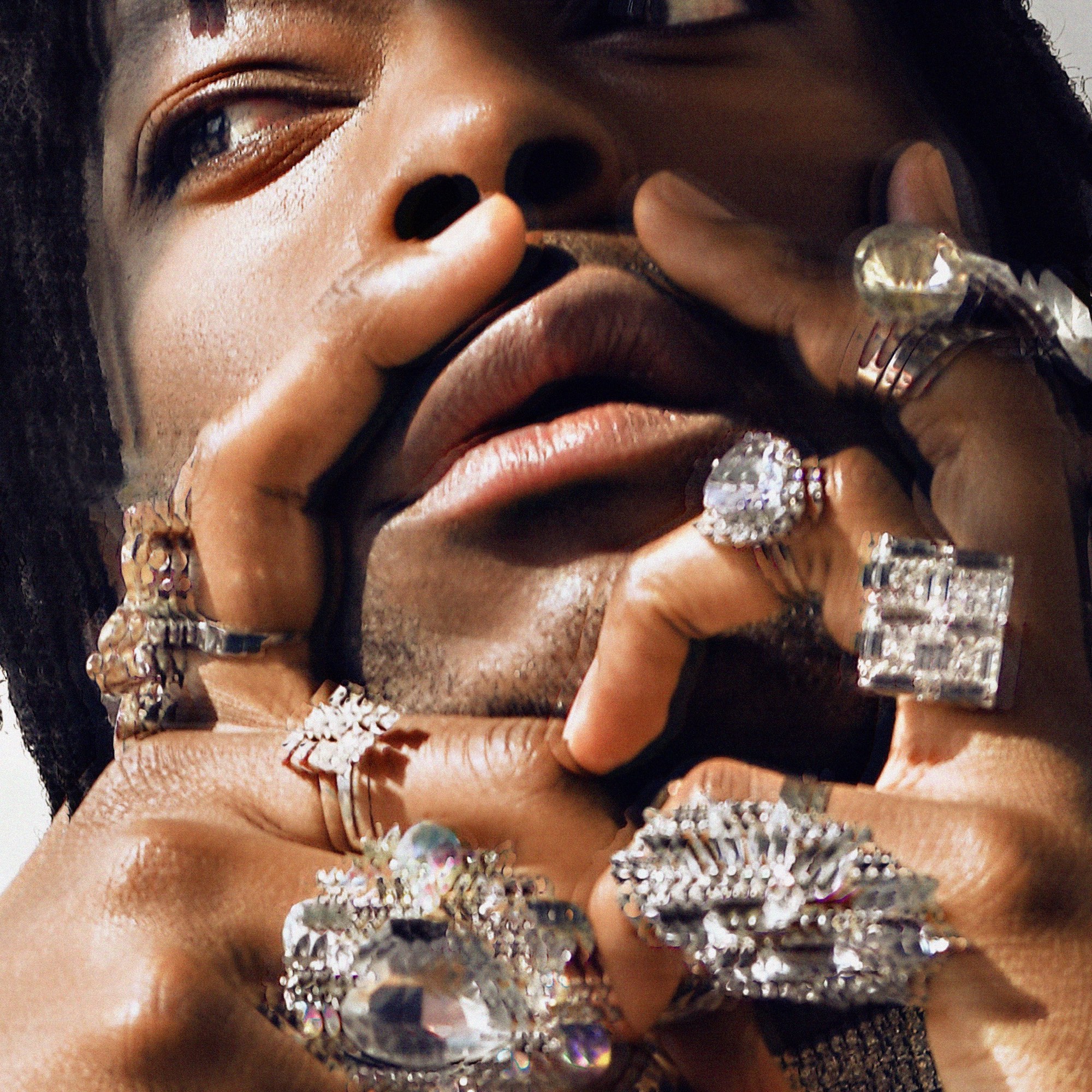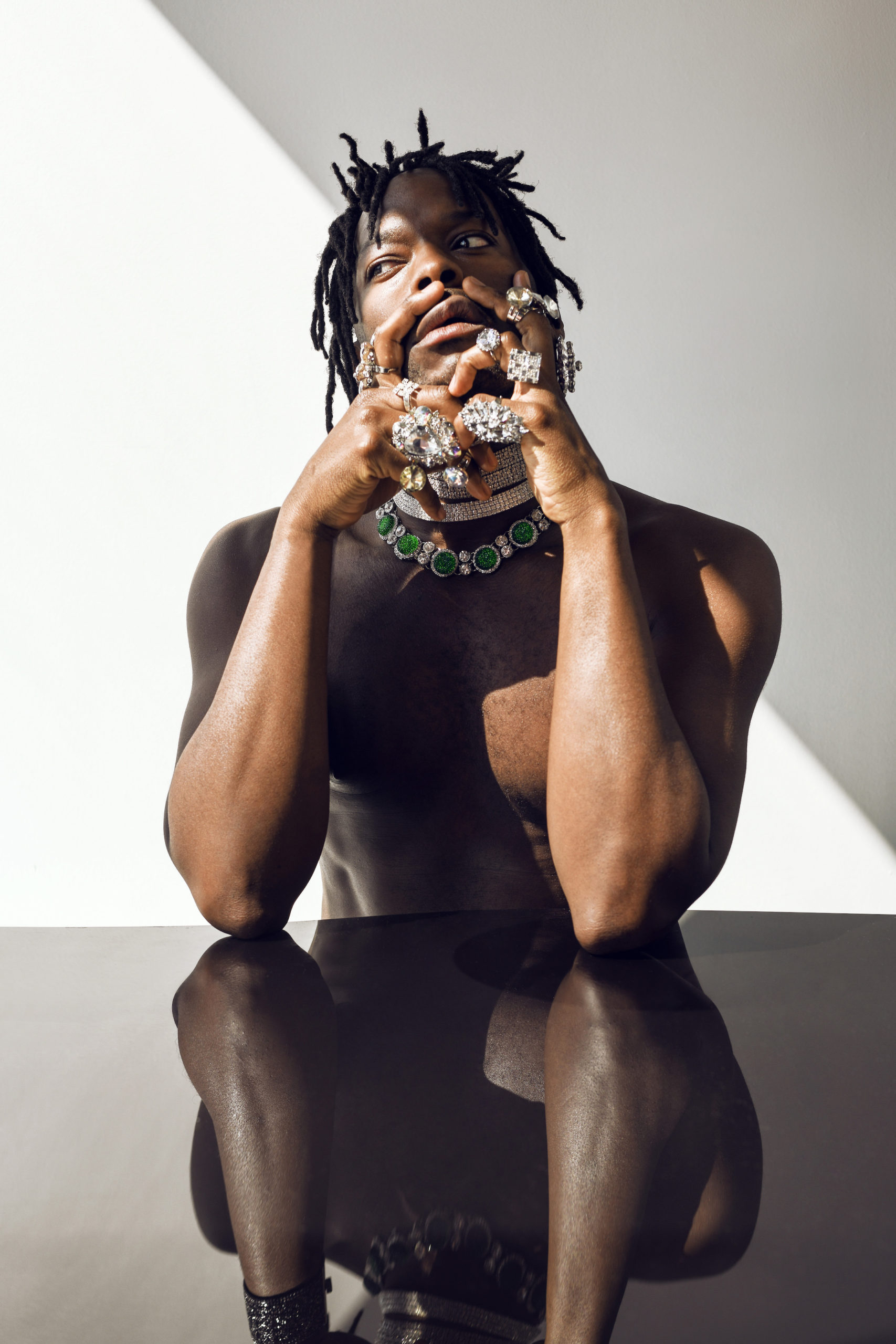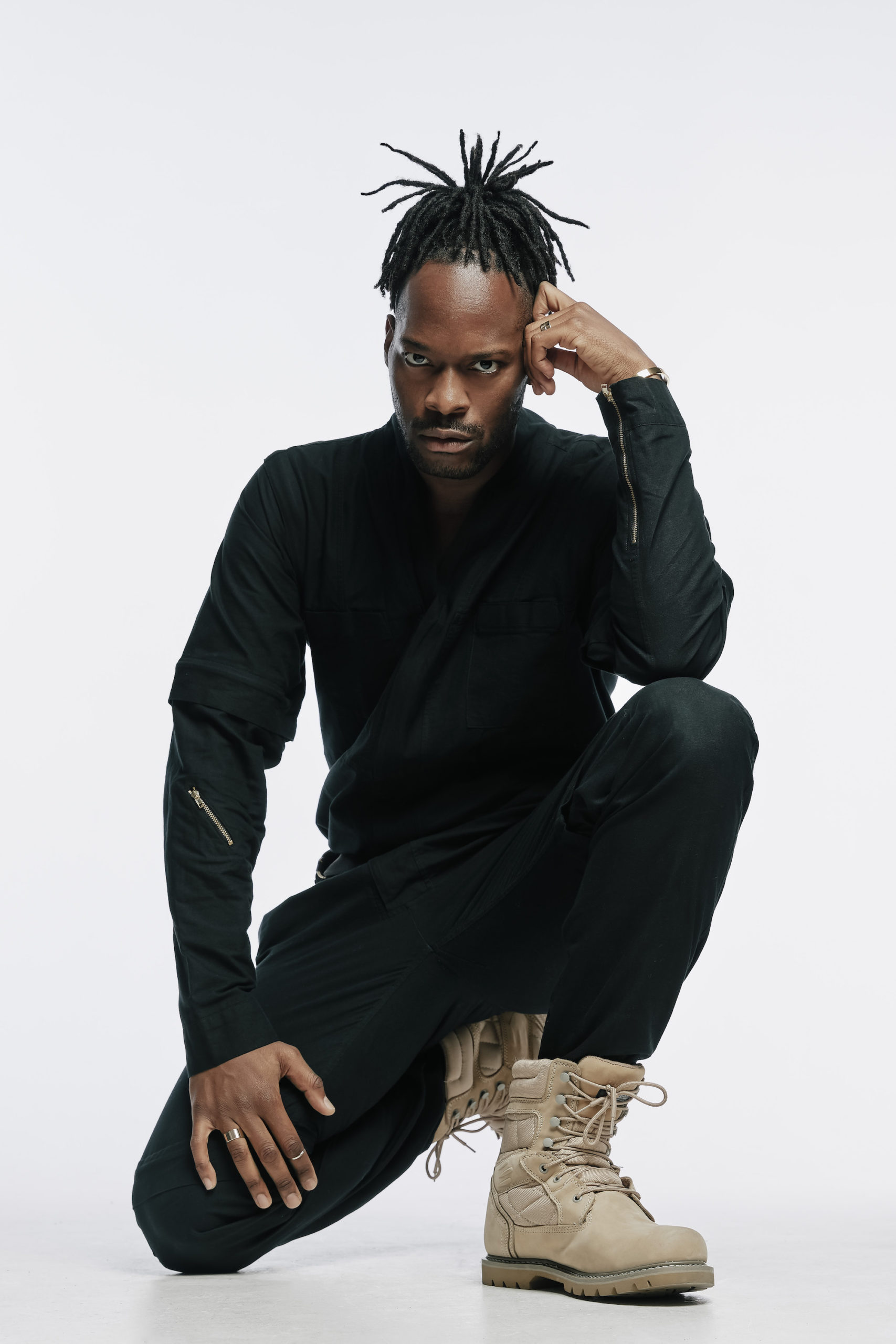The Berlin-based artist talks navigating an authentic path in the music industry, new album, and community.

Seven years after the viral single, “Ima Read”, Zebra Katz returns to present his debut album, “LESS IS MOOR”. The release deep-dives into Katz’s experiences as an “Other” within the music industry and presents a distinct blend of RnB, drum and bass, and a universe-crossing simplicity within music as a whole; something unique to himself. With a strong DIY mindset and approach, Zebra Katz takes us on a rollercoaster of emotion; the tracks are at once sensual and anger-driven, anthems of empowerment and enlightenment. Having spent the past eight years navigating his way through the world and his own identity as an artist (and touring with the Gorillaz!), Katz sat down with us to discuss his journey and the theme behind “LESS IS MOOR”; reclaiming his narrative, that is.
Hey, Zebra! How are you today?
Well, today has been the tail-end of mercury retrograde, but we’re almost there! It’s been one of those days that try you, but I’m just going to pursue…
You can do it! So, it’s been some time since you released new music. What made it the right time for you now?
Confidence. As an independent artist, I needed to take the time to learn the business and build my label up. I had to take the time to make sure I had a story to tell. This album is a reflection of the last eight years of my life in this industry, condensed into one story. I learnt a lot over the years and I’ve been trying to apply that to my work.
The album is very powerful and the lyrics feel super personal. What was the emotional journey you went through on this album?
To be a black person right now is very trying. James Baldwin once said, “To be a Negro in this country and to be relatively conscious is to be in a rage almost all the time,” and within this album, I’m dancing with that rage. On this album, I decided that now is the time to fully embrace my sexuality, my sensual side and how that sounds sonically. The album is about how it feels to be me.

I think you’re also in a position where you just being you can be perceived as a political statement. How do you feel about this presumption, and for you, should your art and politics always be synonymous?
I wish I could say I had a choice. The things that have been projected onto me my entire life—my race and my sexuality—drive my work as a black body and as an “other”. I don’t think you can have a political body and not be political. The art is that interplay. I’m trying to work with it and challenge it; challenge how people try to define me or categorise me.
The whole album is political in nature, but what initially stands out is the album’s title, “LESS IS MOOR”. What led you to decide to go with this album name?
The album is a continuation of my senior thesis work, “Moor Contradictions”, which I debuted in 2007. Zebra Katz was one of the characters within that piece and the title itself is a play on many things. “Moor” speaks specifically to my blackness as well as playing on the notion of how black people are expected to do “more” yet are given “less”. Alongside this, the title is also an ode to minimalism; referring to my earlier work, like “Imma Read”, where I let the vocals and kick-drum drive the track.
You mention “Ima Read”, your viral song in which you reclaimed the word “bitch”. What inspired you to take this stance initially?
It was the timing and where I was in my life. My work is always reflective. I just remember it was a word I loved saying, and one I also claimed and resonated with me. After I made the song with Njena Reddd Foxxx, it became very much an anthem. We wanted to heighten the word and give people the chance to feel empowered by it.
This album continues the notion of taking back your narrative. What would you say is your narrative now, and what is the narrative people have tried to create for you within the industry?
I think I’m currently living my narrative. In the past, media was obsessed with this racist way of creating queer rap; they couldn’t deal with “otherness”. I use “otherness” as a term for queer because I think it’s more encompassing. When I started creating my own work and celebrating myself, everything changed for me, and this album is a continuation of doing it yourself and not waiting for people to come and fix things for you. We live in desperate times, so I wanted to use that abrasiveness and for it to reflect within the album.

The space and the communities that you surround yourself with can be catalysts for feeling like your authentic self. Where is this space for you?
I think I’m always myself. When the lights are on and the cameras are rolling (or the phone is recording), people are looking at me from a different lens and they may expect different things. I live in the comfort of knowing when I can turn it on and turn it off. Zebra Katz is a character I developed, and I think I can easily step away from that. I have a lot of escapism, but I’m ready to get back out there!
Is there a taking off of the mask of “Zebra Katz” then?
I wouldn’t say it’s necessarily a mask. I think it’s more than when I’m on stage I’m switched on because that’s what people are buying tickets to see. When I perform I have a different manner. There are different nuances to how I deliver the character of Zebra Katz. There are moments of being on and off, and I think those moments are important.
Does this album feel like a new chapter of your life, a new start?
I feel like with this album I finally make a statement, and it’s really just getting started for me. We, as artists, are required to do so much with cell phones now; back in 2012 there wasn’t Spotify or Apple Music, so now it’s all-new. Speaking with my peers, none of them is on a label that supports them or checks up on them and on their mental health. I was always aware of that and didn’t want to make the same mistakes. I’ve made mistakes in this industry, but those I had to let go of.
Would you say you’ve built a community around yourself then? How exactly do you rely on one another?
I think we all need these communities, especially now in the digital age! People in this industry are shiesty, I need to know all the information about the people around me. Not all of us have people with our best interests at heart! You’ve got to look out for yourself first, then you can help people out. I hope I get to a place where I can do that with my label; the platform is already there.
With this new release, what do you hope for the future?
I hope that people are a little more empathetic. I hope that there’s some change in the future as a result of that. I feel like we’ve reached a point where we speak about things that upset us, but we need more solutions and ways to deal with them. I also look forward to putting out more music, now that I fully know what it’s like to release an album.